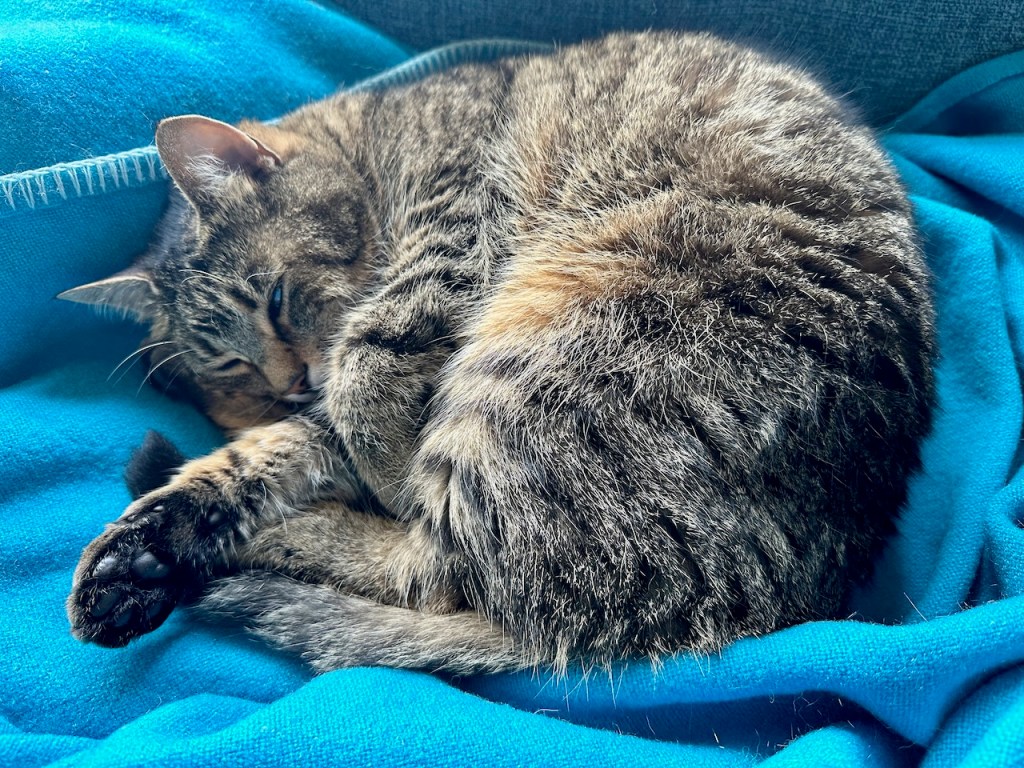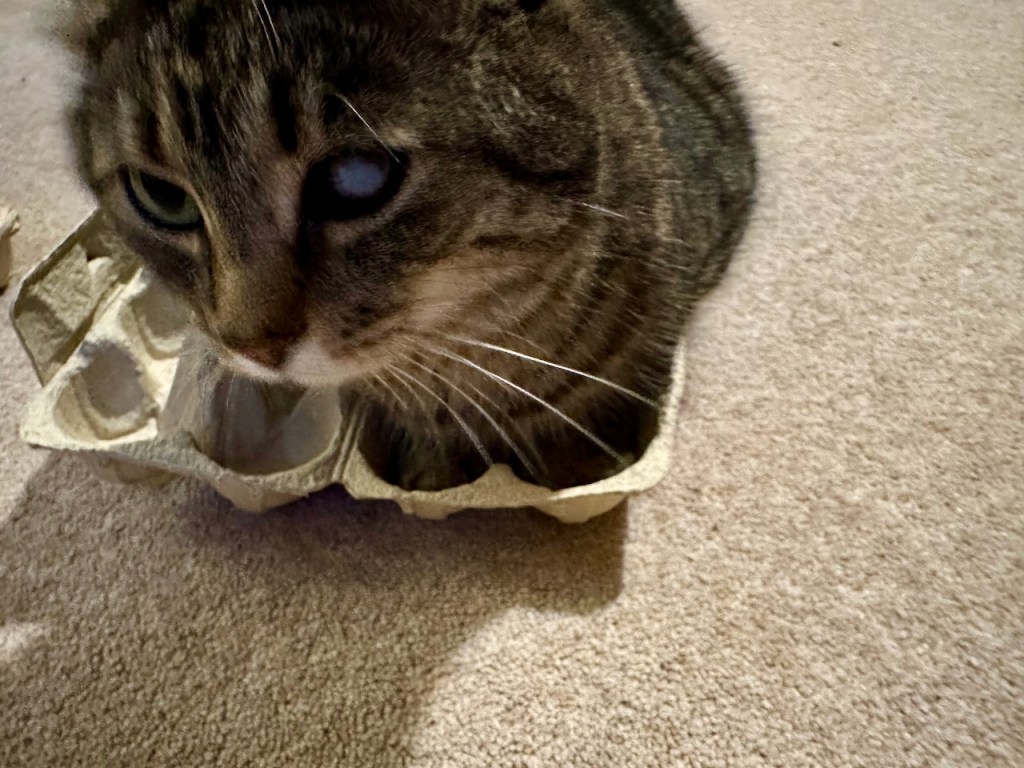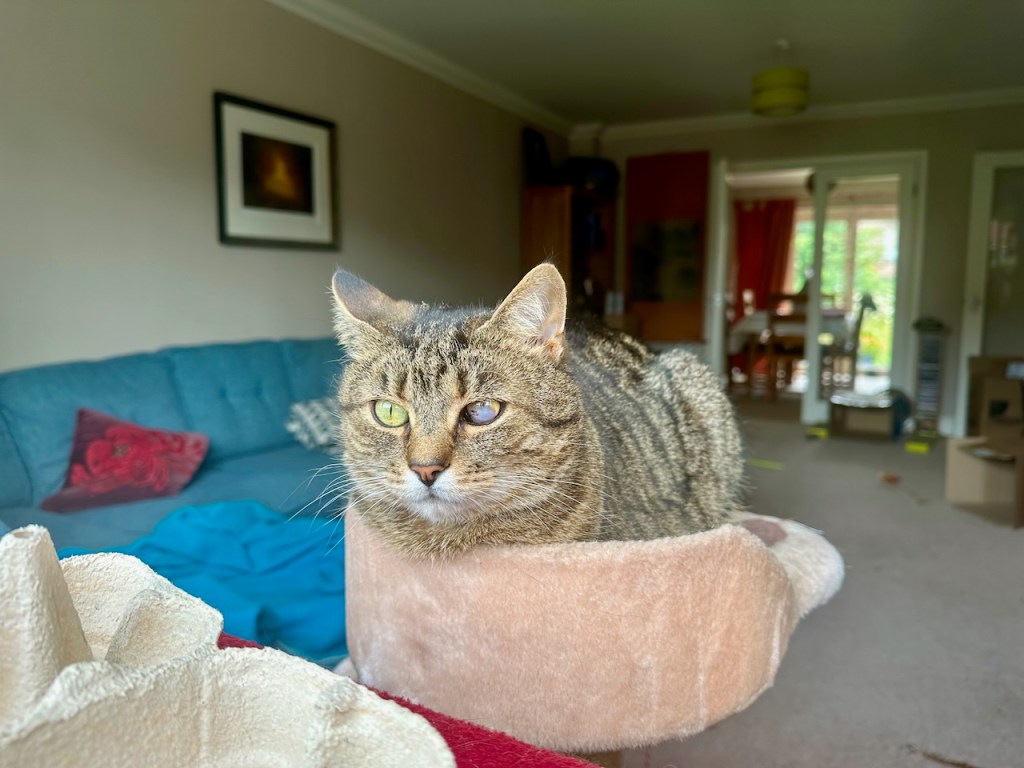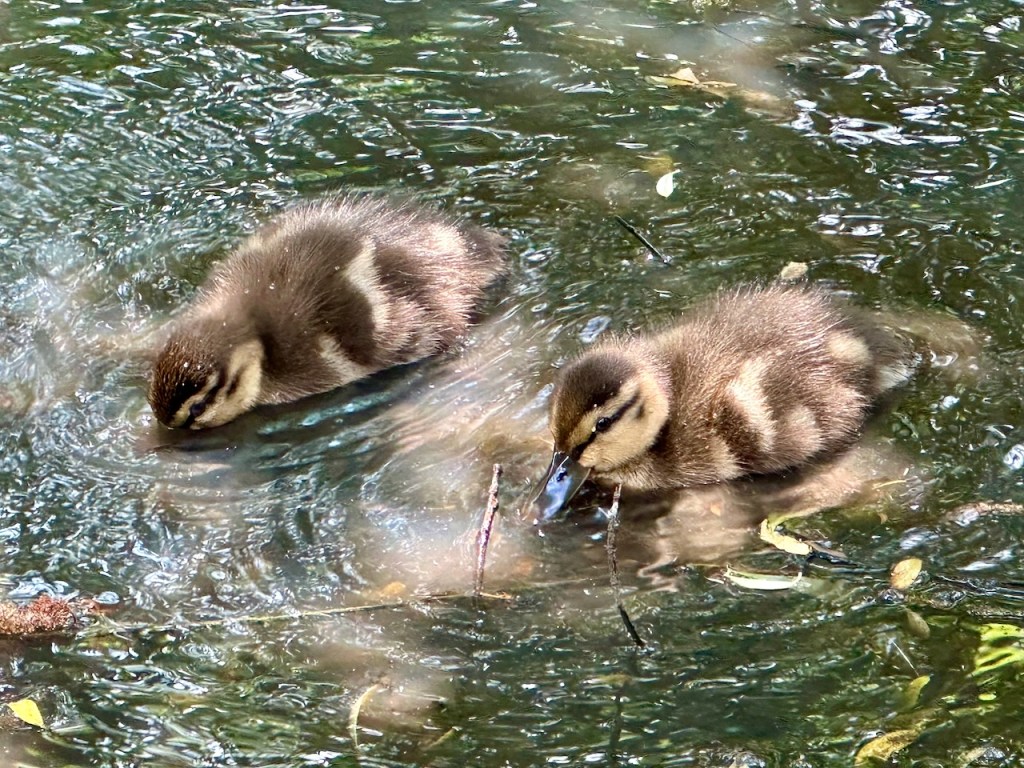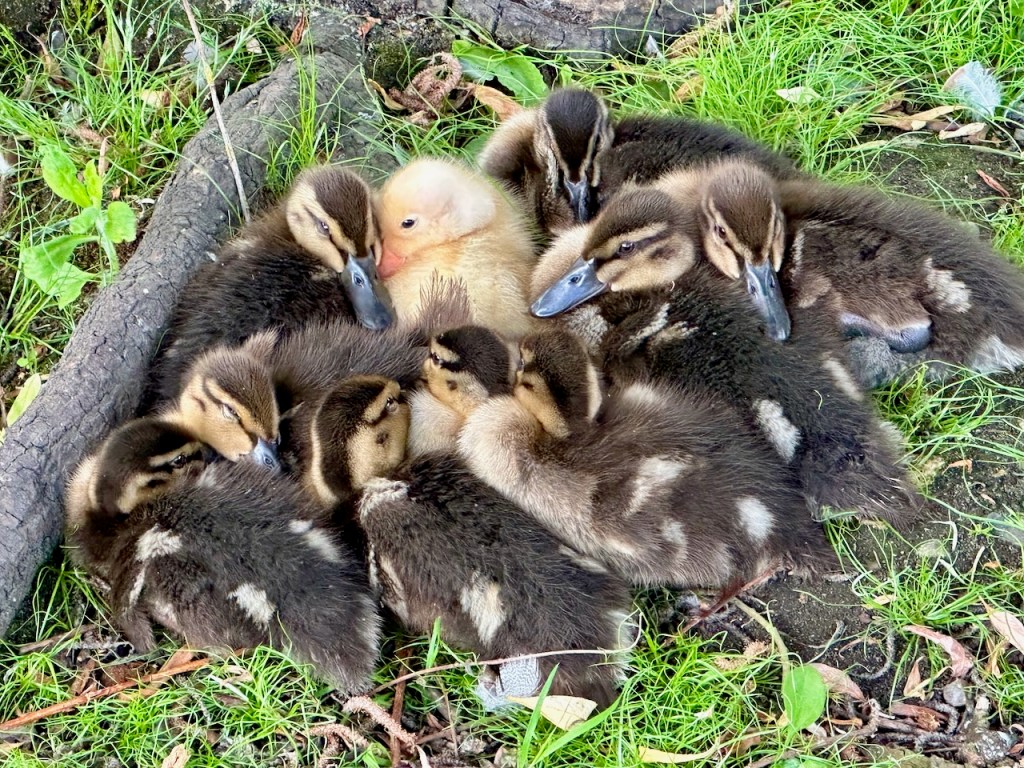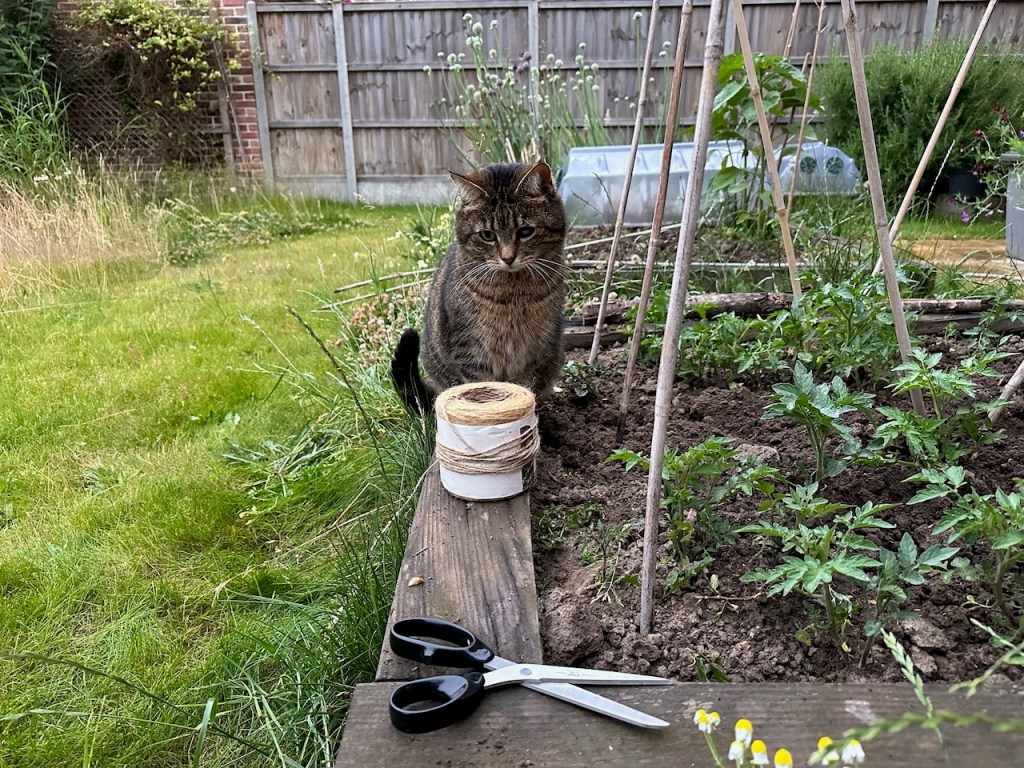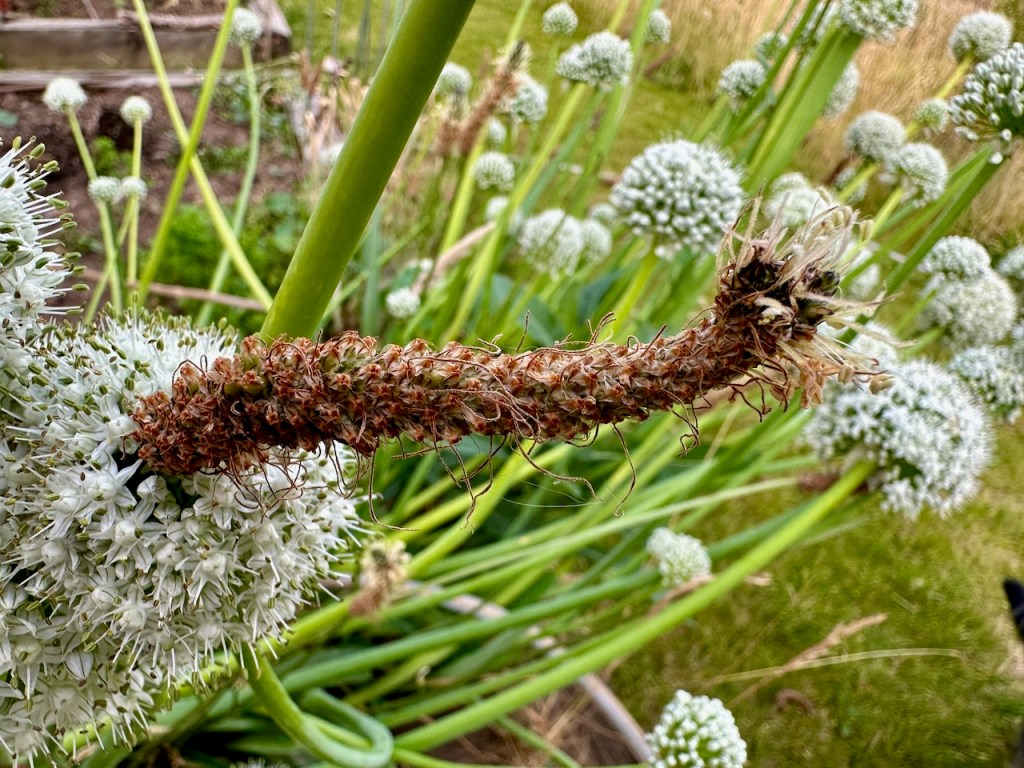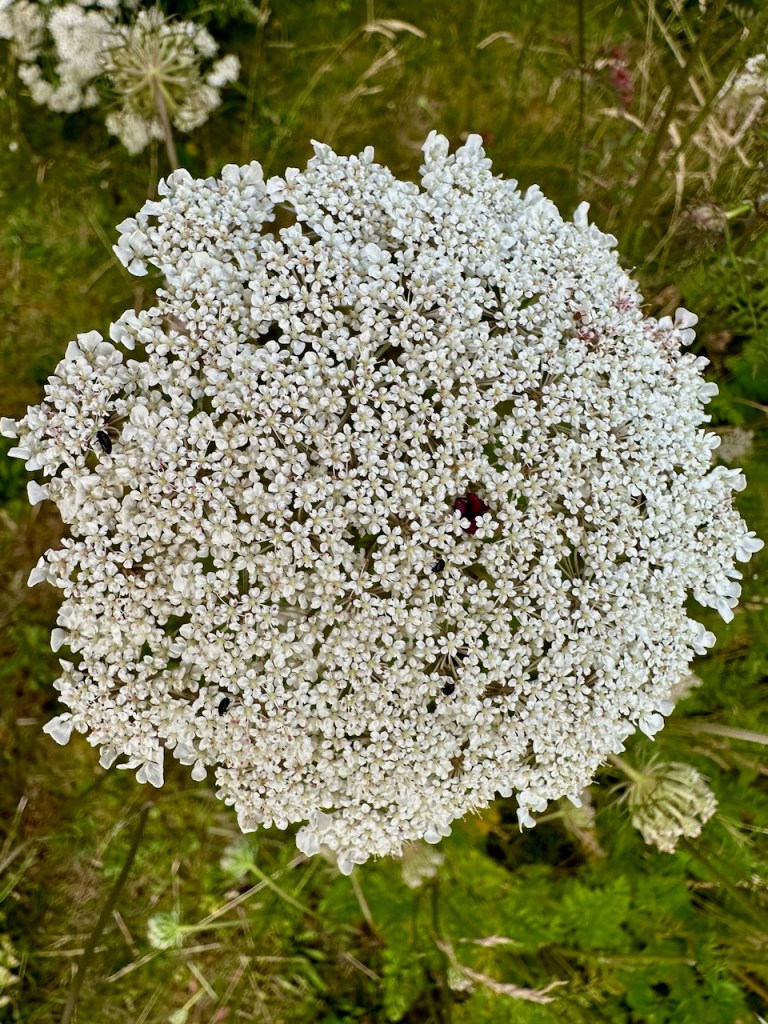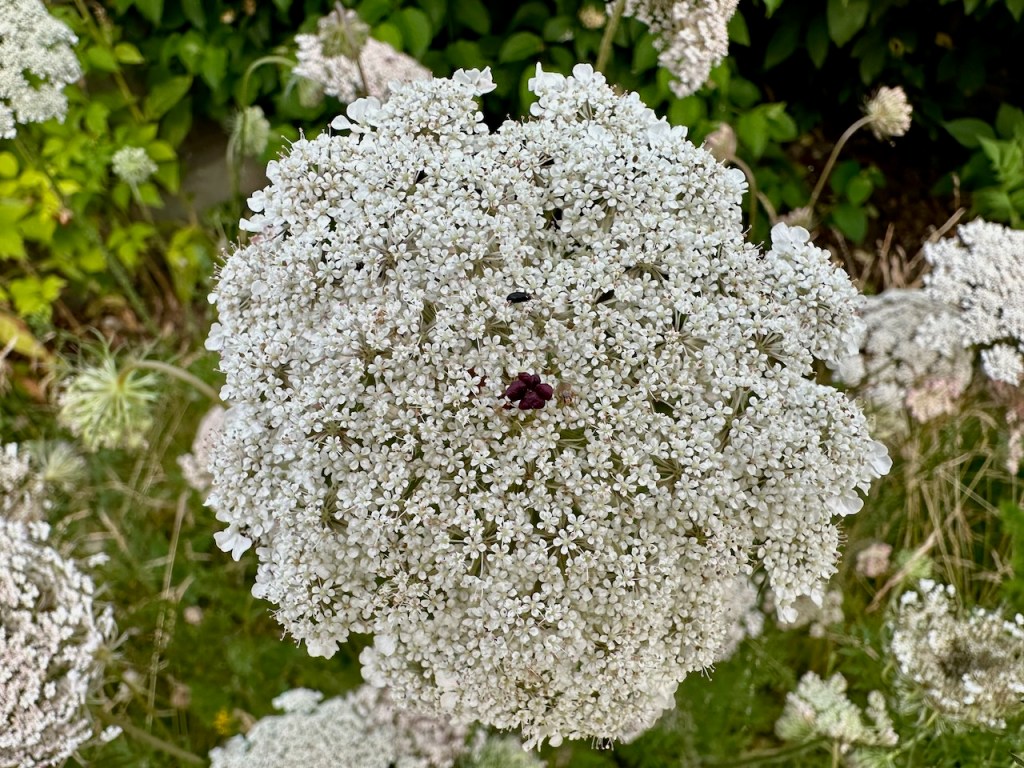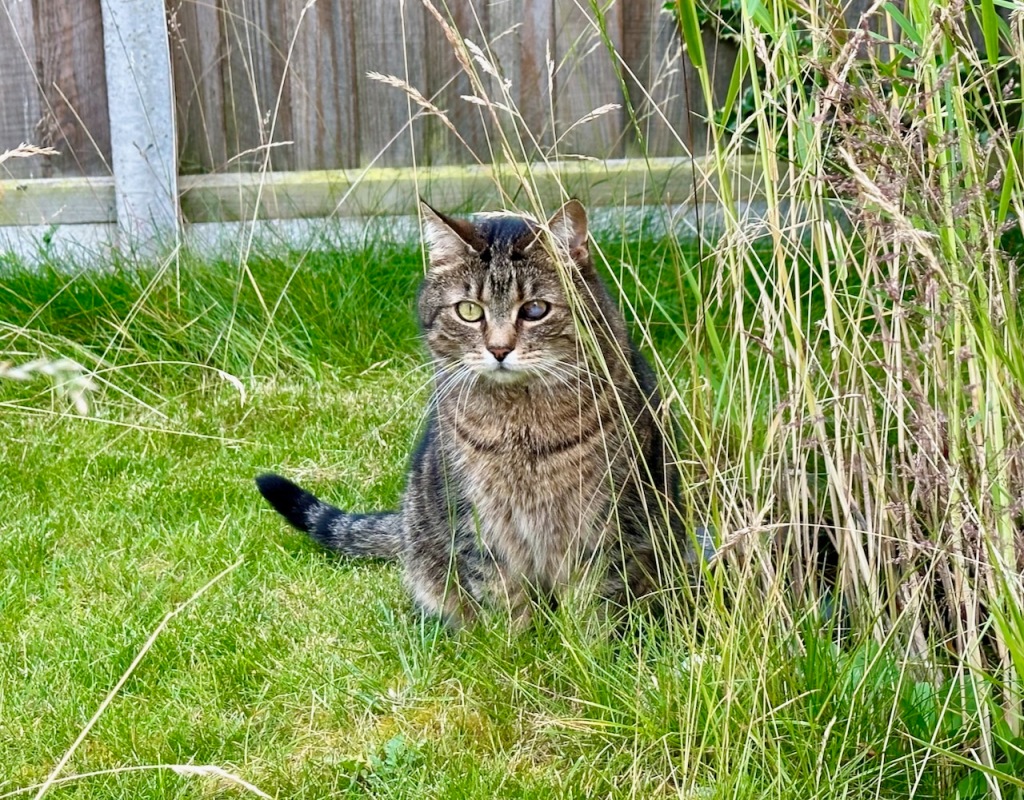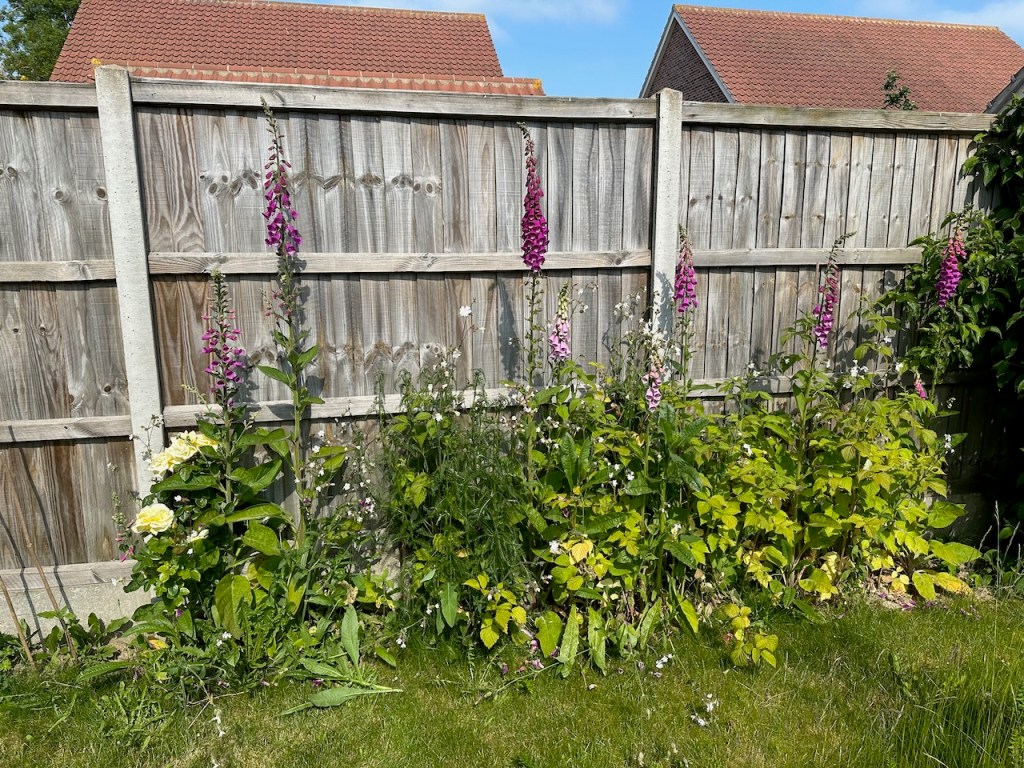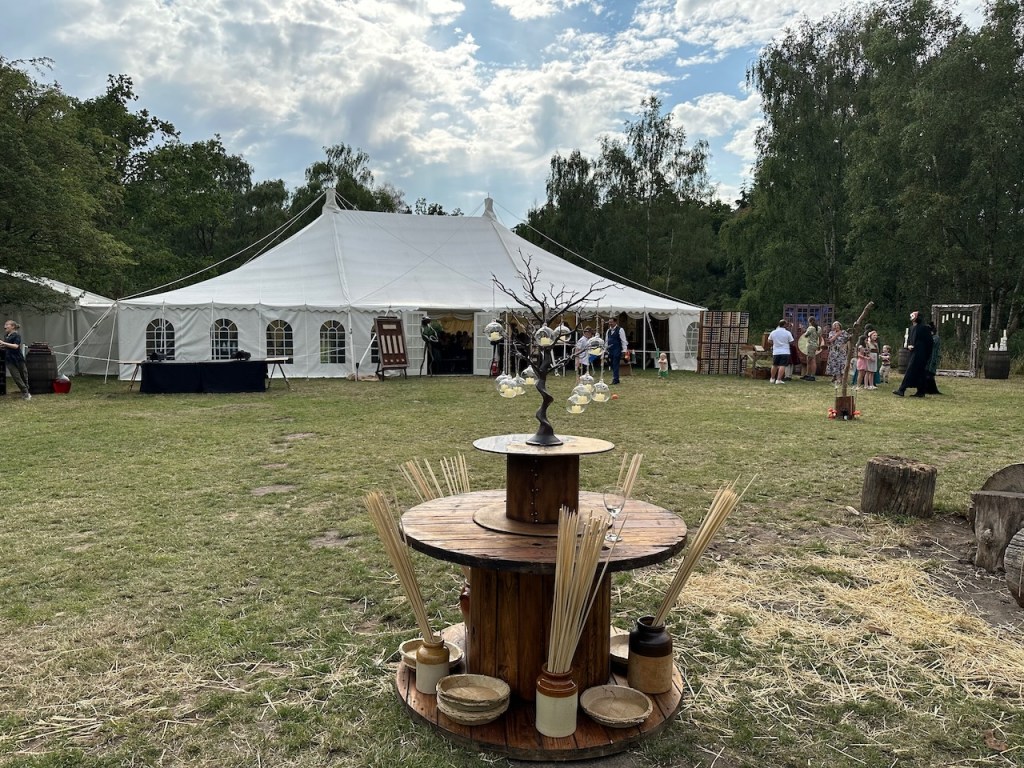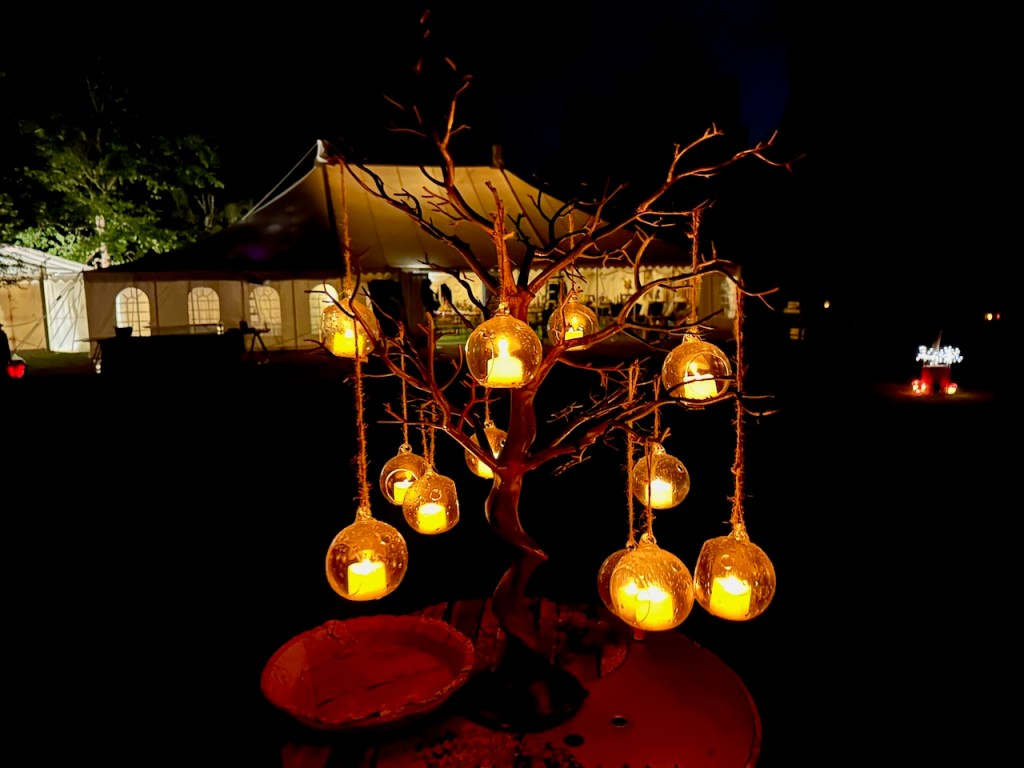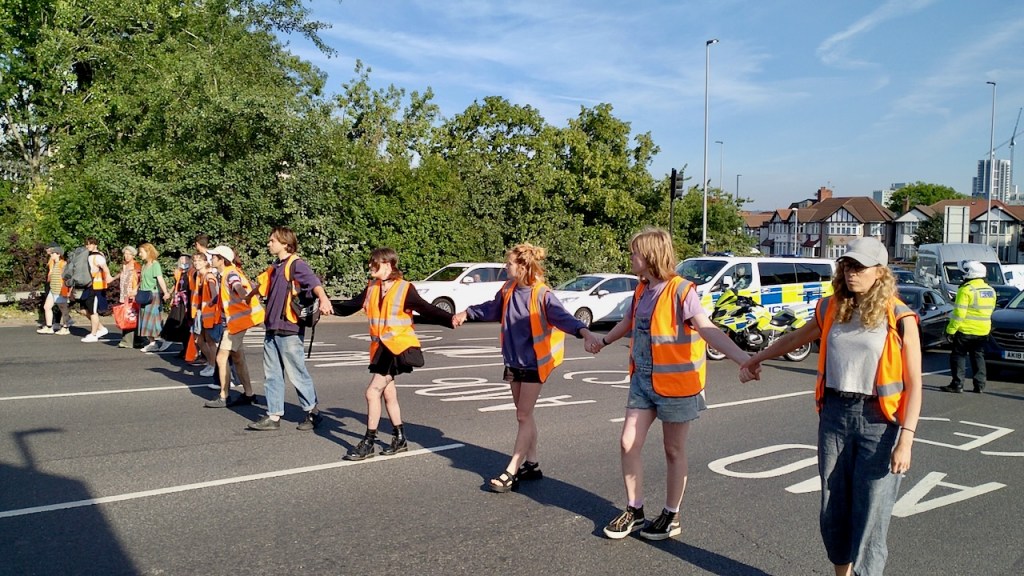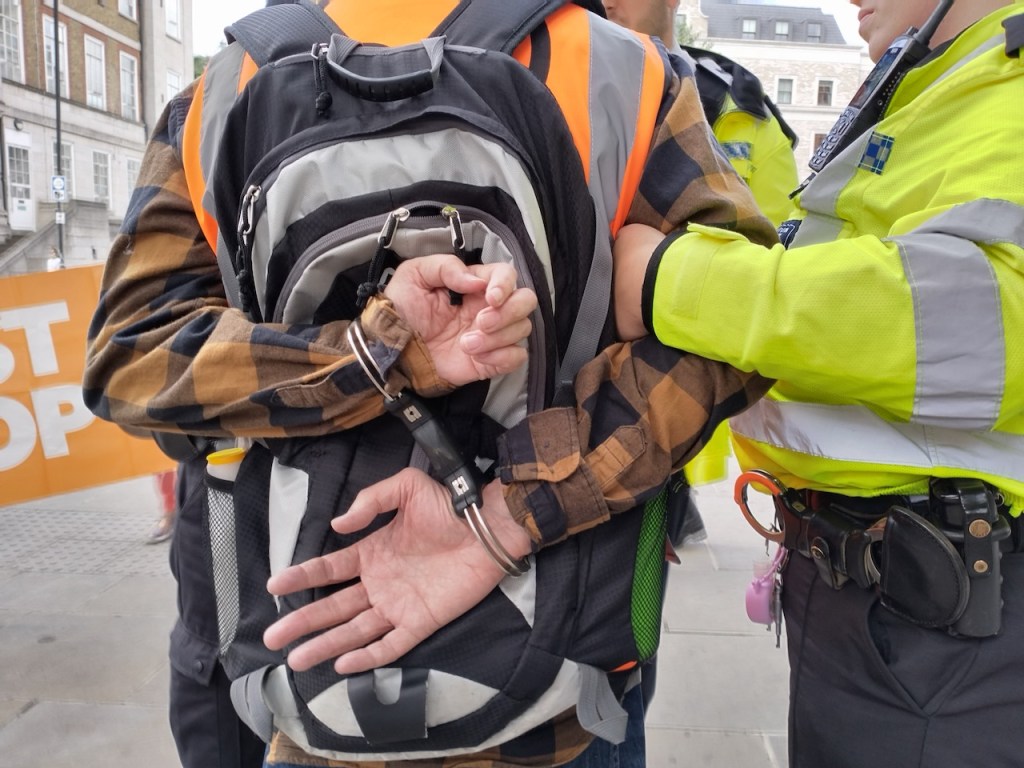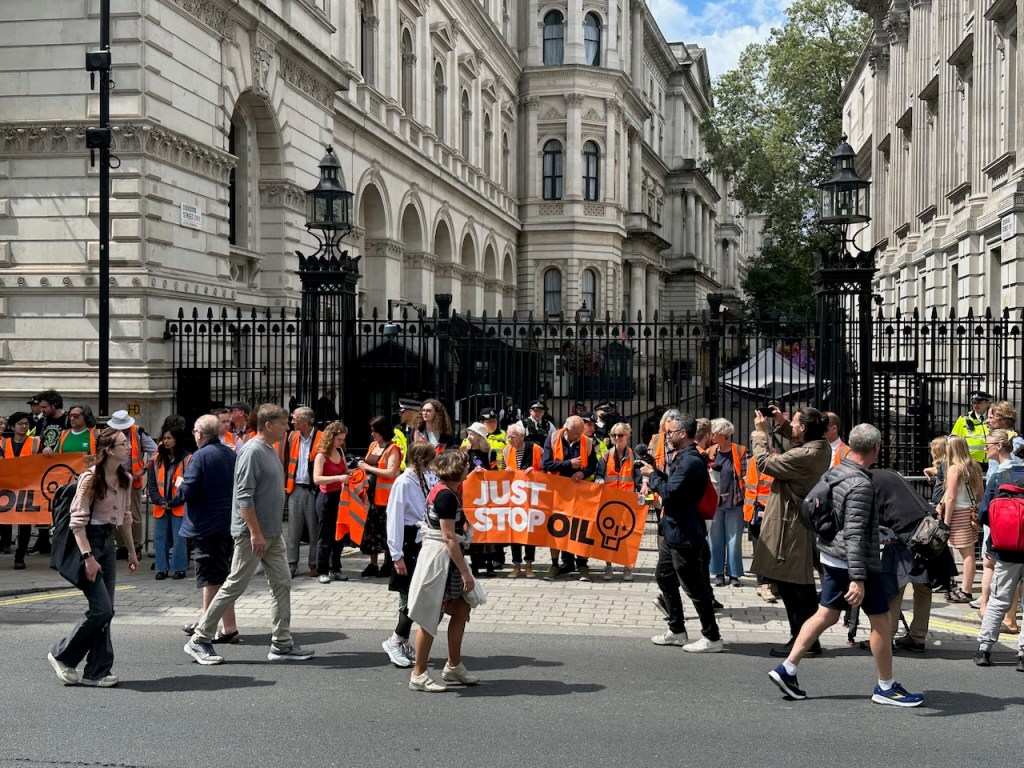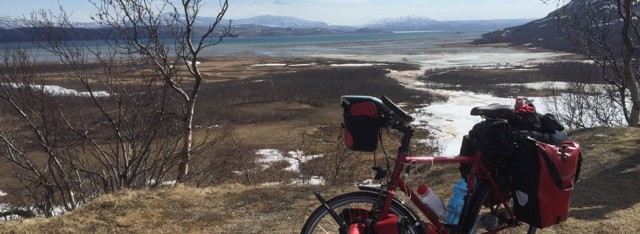I’ve been delaying writing this ever since getting back from London. I’m still not entirely sure what I’m going to write, or what’s going to come out after spending two weeks on the streets of our capital. Along with thousands of other activists I was trying to bring more attention to the climate crisis, and to catalyse the changes we need to make to avert catastrophe. Climate Breakdown is a very real and present threat, and I still don’t think the majority realise this, or have properly processed the fact that we can’t go on as we are. Business as usual just ploughs on like a runaway train, air travel keeps going up, we’re chopping down forests at even faster rates all around the globe, or they’re on fire, the oceans are dying from over-fishing, and CO2 emissions continue to go up year on year. We have so little time left to alter our trajectory I often feel we’ve left it too late, and the task is impossible. It comes back to the same thing though; we’ve got to try, haven’t we?

Red Brigade at Vauxhall Gardens
I joined Extinction Rebellion (XR) a year ago when it first started up as a chapter in Norwich, and remain convinced that its motives and methods, along with other similarly aligned organisations, offer the best chance for bringing about change. I go through periods of doubt, questioning myself and XR’s tactics, after all I’ve only been an activist for a year. What do I know compared to people who have been doing this for decades? Without doubt we need to learn from our mistakes, reflect on our successes, and come up with new ideas, methods, and ways of reaching beyond our current member base and boundaries. In the space of a year we’ve achieved so much in terms of raising the profile of the climate and ecological emergency. In a year, in tandem with other movements such as the Youth Climate Strikes, Greenpeace and Friends of the Earth, as well as the phenomenal efforts of Greta Thunberg, we’ve seen more happen than in the last 30 or 40 years of waiting for politicians to do something. Following traditional tactics such as writing to your MP just hasn’t worked; politicians continue to fail us.
There can be no doubt that non-violent civil disobedience has been successful up until now, but is that and mass arrests the be and end all of Extinction Rebellion, or do we have more in our repertoire? I think we do and we will learn, evolve and adapt in the same way wider society, government and business need to in order to survive.
-
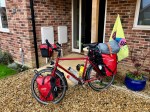
-
Touring bike roadworthy once more
-

-
Overnight stop in Cambourne
-
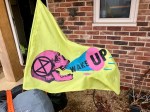
-
Wake up! I wish more people would
So what to write in this blog? It might be a long one, just to warn you. I’ve already restarted it 3 times and that’s after only 2 paragraphs. I’ll try and give you a bit of a record of my journey through the October Rebellion, combined with my thoughts on what we’ve learned, and what we might do next. Writing this is as much about me processing my own thoughts as it is about relating things to readers. My opinions and conclusions are my own, and I welcome any constructive comments and criticism that will further develop my thinking. XR tries to be an inclusive movement welcoming everyone and all parts of everyone, but if you’re in the mood for trolling please look elsewhere.
As you may have gathered from the above photos I decided to cycle down to London. It’s been a while since I did a long ride, and I needed some head space between finishing work and joining the Rebellion. My touring bike needed quite a lot of work, and given I seem to have no spare time I employed the services of the Norwich Cycle Medic (http://www.cyclemedicnorwich.co.uk) to build new wheels and give everything an overhaul; very satisfied with the work done.
XR members receive lots of criticism from people for using cars, buses or even trains to get to London to join the protests. Frankly this criticism is tiring and nonsense most of the time, made by people who really don’t understand the relative scale of the problem. We have to work with what we’ve got, and at the moment that’s an infrastructure and transport system that is largely carbon based. Should we all just do nothing and wait at home for the axe to fall? One has to use the tools that are available, and until we can bring about the changes needed that involves fossil fuelled transport. The emissions generated from the relatively small number of people travelling to London, or from the traffic delays caused by the protests, are negligible when compared to everything else, and I feel are completely justified. Many of us, including me, don’t fly anymore, and try and minimise car use wherever possible, therefore a bus trip to London to protest really is minimal in the grander scheme of things. Focus should instead be on frequent flyers, especially on people who have to fly excessively for business, when meetings can be held effectively by virtual means these days.
-

-
Taking the canal path into central London – traffic free!
-

-
Arriving at Marble Arch
-
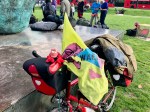
-
Travelling Lobster – he’s excited…honest
-

-
Crowds gather for the opening ceremony
-
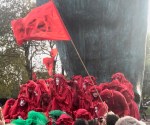
-
Red Brigade at Marble Arch
-

-
Night spent in Hyde Park
On that note one of the best realisations, for me, from the October Rebellion, is that ‘we are all hypocrites‘. I loved this when I heard it. We are all part of the system, and all contribute to the problem. We need to accept this and move on. It can’t be any other way given what we have available to us. As someone who is acutely aware of the challenges we face I try to minimise my carbon footprint, alongside my ecological impact from other factors, but I still very much contribute to the problem. Until we have systemic change this will continue to be the case. And we need to be aware that our footprint in the UK is huge compared with that in many other countries; our rate of CO2 emissions massively outweigh that of poorer countries.
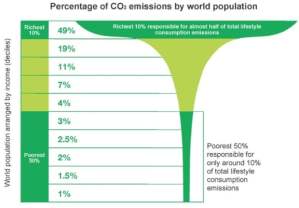
Global CO2 emissions by wealth
So when we attract the inevitable criticism telling us to go and protest in China, or the US, as ‘their emissions are so much higher and our’s are a drop in the ocean in comparison’, one needs to remember the above chart; we’re in that top 10%. Sure, China’s emissions might be high, but they manufacture a lot of the goods we feel the need to constantly buy, and then there’s the transport impact of those goods, our holidays, throw-away lifestyles etc. Our emissions are still huge compared with poorer countries, due to our lifestyles and the system we have to work within; throwaway culture, fast fashion, diet, habits and hobbies, excessive consumption in buying things we want but don’t need, marketing driving all this. Again, it comes down to needing systemic change, and for everyone to realise this. There’s also the fact that historically the UK, ever since the agricultural and industrial revolutions (which we led), has had centuries of high emissions to build our infrastructure, business, and lifestyles. Other countries are still trying to catch up, so given our historic footprint shouldn’t we do even more to curb our emissions, and limit our expenditure of the remaining carbon budget? I could go on, but let’s get back to London.
It took me two days to pedal to London, covering about 155 miles. It could have been about 10 miles shorter but I forgot about the MOD firing ranges in Thetford Forest and had to backtrack a bit, plus take a few unintended off-road routes. I only fell off my bike once, into a Hawthorn hedge – bit prickly. I overnighted in Cambourne with my brother and his family, before the final leg to Marble Arch, getting drenched as showers hit on Sunday morning. It was pleasant using canal paths for the final stretches, thus avoiding most of the traffic and air pollution. My heart leapt upon arriving at Marble Arch, where I’d camped for the April Rebellion, and upon seeing all the Rebels gathered for the opening ceremony; good to meet up with Ben too, an old friend I hadn’t seen for some time – really appreciated the catch-up. I rendezvous’d with the rest of the Norwich and Norfolk team, who came down in two coaches (excellent turnout), before spending the night in my bivvy bag in Hyde Park.
-

-
Sunrise in Hyde Park
-
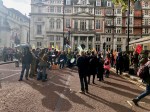
-
Road block next to St. James’ Park
-

-
Taking the road at Horse Guards
I should probably explain what we had planned, and the roles I’d volunteered for the October Rebellion. Groups came from all over the country, and we split up by region to occupy several different sites around Westminster. The aim was to bring the City to a halt by blocking the key routes in and out, and to a degree we were successful, at least initially. We wanted to target government, business and institutions, those that need to lead on systemic change. I took on the role of affinity group coordinator (we had several affinity groups formed of Norwich and Norfolk Rebels), and was one of the Reactive point people for our location, which mainly involved comms between the site and rebel support functions. I dabbled in a bit of media and messaging, including a lot of live-streaming and social media updates, and was one of the facilitators for site meetings; I do like some of the XR techniques for managing large meetings, and would like to use them in my day job!
Following the first night in Hyde Park we assembled and made our way to St. James’ Park (only got slightly lost) to take our objective; the ‘Love Rebellion’ site, named with the aim of providing space for regeneration, music and outreach. There were a few hundred of us, all East of England and Midlands groups. We stepped off the road. We rebelled for life. We took our site.
-
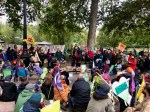
-
Rebels gather at St. James’ Park
-
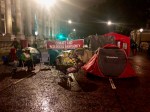
-
Night falls – tents on Birdcage Walk
-

-
Swallowtails forever
-
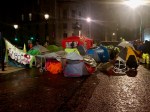
-
Pulling a nightshift – it rained, a lot
-
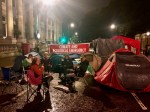
-
Norwich Rebel on duty in the early hours – thank you Hayley for reading No.1 Ladies Detective agency to us!
-
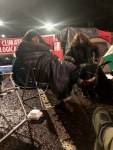
-
It was cold and wet
What happened next? It would take several blogs to relate events from the two weeks. I’ll try to be succinct (hah). As well as holding our respective sites around the City of Westminster there were lots of actions planned, with aim of putting pressure on the Government, financial sector, big business, defence industry, oil and gas industry, judicial system etc to highlight the Climate Crisis and bring about change. We always knew it was going to be tough, with the police having been briefed to take a harder stance against us after the April Rebellion. I think they must have been specifically briefed to not be as friendly, not to smile, intimidate us where possible, and keep interaction to a minimum aside from when trying to move us on our make arrests. They are however, only human, and being constantly around us were constantly in receipt of messages on the Climate Crisis. So many of them support us, but also have to do their job. We know a few have quit and since joined us, and several retired officers, some senior ranking, are now amongst our number. Policing us is an almost impossible task given cuts and the numbers involved. Officers were drafted in from all over the country; we had conversations with individuals from Wales, Manchester, East Anglia and beyond, and when they had the chance many expressed support. A few were in tears during some of our actions, after observing the numbers willing to be arrested, hearing the messages, and witnessing the Red Brigade.
Being in St. James’ Park we weren’t far from several other sites, including Trafalgar Square which became a focal point after several other locations fell. The ‘Burning Earth’ site was a wonder to behold, from the Hearse that blocked the road, to all the artwork, tents, assemblies and rebels.
-
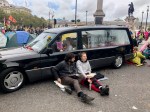
-
Hearse blocking road in Trafalgar Square
-

-
Nelson’s Column looking resplendent
-
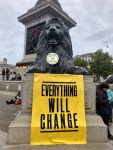
-
Everything Will Change
-

-
Lots of structures built
-

-
Humility Empathy Frugality
-

-
Trafalgar Square – Burning Earth Site
-

-
Reflect Rebel Restore
-
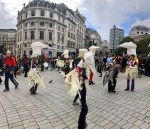
-
Norwich Birds in action in Trafalgar Square
-

-
Ka ka
I should mention the kitchens that fed us for much of the two weeks. They were amazing, and alongside the efforts of Hare Krishna kept our energy levels and morale up. The police were constantly trying to confiscate our infrastructure, however the kitchens kept going, springing up at new sites when we were forced to move, and churning out thousands of vegetarian and vegan meals over the two weeks; some tireless efforts by certain individuals, with much gratitude. Thanks should also be given to all the food donations made both my locals, but also from afar. It’s amazing when a Deliveroo rider turns up at a roadblock with 3 vegan pizzas, ordered by someone from the other side of the country with instructions to deliver them to hungry rebels; not specific individuals, just deliver to whoever is on the roadblock. Also, thanks to Ian who turned up post work and brought me a delicious Vegan burger – much appreciated. I also mentioned Hare Krishna; they fed us loads in April, and did the same in October, pedalling vast amounts of food around London – and it tasted great! Saying that I still managed to lose half a stone on the ‘Extinction Rebellion Diet Plan’, amazing what two weeks of rebelling will do for your waistline.
One learning about kit. We need to be cleverer about delivering kit to locations. It was too easy for the police to identify our vans, stop them, and confiscate items and infrastructure. We could drop kit at other points and walk it in, or split the loads more. The police confiscating stuff did backfire on them at one point when they took possession of much of the disabled infrastructure; ramps, toilets etc. Not their best PR moment, and putting at risk many of our disabled members.
In case it’s not clear many of the rebels present, especially those who travelled, opted to camp in London. This meant tent villages sprang up at our various sites, including on roads, alongside the bigger infrastructure. This got tricky when we had to move stuff quickly or the police started to confiscate items, with people losing or misplacing belongings, and some cold and uncomfortable nights for some; although we did bring in spare tents and sleeping bags. We still have a massive pile of lost property!
-
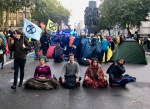
-
A moment of calm as arrest continue on Whitehall
-
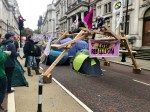
-
Our Da Vinci bridge that appeared overnight – thanks to world building team
-
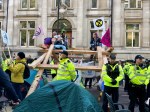
-
Da Vinci Bridge wasn’t popular with the police
-
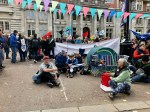
-
Police move in, time to sit down
-

-
Singing, dance and performance art
-

-
More birds join the protest
-
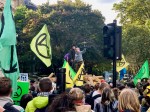
-
Police move in on Da Vinci Bridge
-
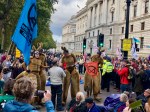
-
Antipodien kangaroo reinforcements
-

-
Red Brigade make an appearance as the roadblocks fall (again)
St. James’ Park was a brilliant site, and hub for so much activity, especially as we were joined by the Global Justice crew bringing with them more diversity and education on the challenges faced by populations around the world in the face of climate breakdown. I learned a lot about Global South versus the Global North, and again how privileged we are in the country. Privilege is something we all need to acknowledge to one degree or another. I’m grateful that I have the right to protest in this country, and to not be beaten up and imprisoned for it. I also acknowledge that I’m a middle-classed white male, with money in the bank and access to free healthcare, as well as a host of other benefits not available to others which I often take for granted. I’m not a victim of the institutional racism that impacts many people and other protest movements. I’m far less likely to be stopped and searched than a black or brown person. At the moment I’m unlikely to ever go hungry, lack water, suffer disease, or face the threat of violence motivated by competition for resources becoming more scarce due to climate breakdown; war will become increasingly driven by the climate crisis.
That’s not to say the latter points won’t happen in this country during my lifetime. I think think there’s a high risk they will as the impacts of the climate crisis escalate and are felt closer to home. At the moment if a harvest fails in one part of the world, which happens all the time, we can afford to buy food from somewhere else, but what happens when harvests fail across multiple locations at the same time, and we can’t buy our way out of the problem? The ‘Just in Time’ supply and demand chain will come unstuck at some point, and we will be impacted. I think this will happen a lot sooner that we think, and with terrifying consequences. What wouldn’t you do to provide food for your family when the supermarket shelves are empty and your children are hungry? We’re ill-prepared for such an eventuality, and it will hit us hard, with social contracts and community bonds breaking down. It’s one of the reasons I increasingly take a prepping approach to life.
But back to the privilege point; yes, I’m privileged, but should that mean I shouldn’t protest, absolutely not, I just need to learn and have my eyes opened to it. In fact wouldn’t it be selfish and neglectful not to use my privileged status and influence to protest? I need to think about this more and speak with people wiser than I.
At this point I’ll include a short film of the ‘Roo Rebellion’ turning up at one of the roadblocks next to St. James’ Park. Needless to say the sight and sound of a group of antipodeans dressed in kangaroo costumes, bouncing round the street, did a lot to lift and relax the mood. The police present couldn’t keep straight faces, despite their orders.
Despite all our efforts Love Rebellion site fell at the end of week 1, and we were forced to relocate. The police had orders to evict us ahead of the Queen’s Speech in Parliament, and apparently couldn’t let us remain due to the bomb threat risk. They needed to search the site, not because they thought XR had bombs, more that others might do and be using XR as cover.
-
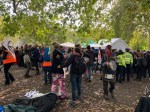
-
Rebels link arms to protect kitchen tents
-
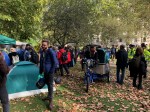
-
Transport mobilising to move kit
-
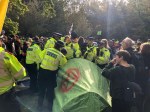
-
A lot of police for one little tent
There was so much colour and vibrancy at our site, from the artwork to the music and samba bands, the rebels themselves and the structures we built. We had a shift system set up to cover the roadblocks and actions, with the Swallowtails Affinity Group I was in covering the first night; that was a long night, rewarded by the appearance of an urban fox in the early hours of the morning. The camaraderie was outstanding, despite the rain and constant attention from police helicopters; the search lights irritated one lady to such an extent she took her clothes off and lay in the road. The police were trying to intimidate and stress us out.
We also had an excellent organisational and decision making system set up, with a council formed of point people from each team, as well as ‘random rebels’. The council was fed information, questions and requests from the Peoples’ Assemblies which took place on a daily basis. I wish we’d had more time to get it all up and running properly and really bed in but alas, we had to move. One learning is to do more prior to a large scale Rebellions to ensure rebels are aware of the structure, site groups, decision making processes etc. There were perhaps too many comms prior to October and key messages were lost.
We evacuated St. James’ Park over the course of an afternoon, trying to get our tents and kit out without it being confiscated, and over to Vauxhall Pleasure Gardens in the London Borough of Lambeth. There were stirring scenes as Rebels linked arms to protect the kitchen, singing songs in defiance or instructions to move on or face arrest. We quickly hired vans, packed up, and prepared to move; my bike ended up with a lot on it! It was quite an exciting walk/ride over to Vauxhall Pleasure Gardens, with the police refusing to allow Rebels to cross the bridge. I merged in with a larger group of cyclists commuting from work, and made it across. Lambeth Council had said we could stay in their park as long as we didn’t cause any local disruption, and were respectful to residents etc. We were and are very grateful to them and residents for accommodating us, and also to the local cafes which we took advantage of several times; it rained, a lot. The gardens also had a piece of work planned to plant insect friendly bulbs towards the end of our stay, so we made sure we cleared the areas they needed to get to. It was nice to see a message thanking us for leaving the site clean and litter free – they said they wished all their visitors were like us.
-
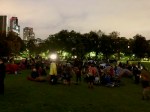
-
Arrival at Vauxhall Pleasure Gardens
-

-
If not us? Who? If not now? When?
-
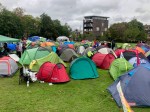
-
Tents up and ready
-

-
Murmurations Affinity Group members going strong
-

-
Sunshine at Vauxhall Gardens finally
-
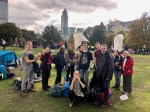
-
Norwich crew in Vegan Pie fest
Where am I up to? So much happened and I’m missing lots out, especially around the sense of camaraderie and the emotions that run through you as you see friends getting arrested, or when support turns up in the form of a samba band at an action that was looking flakey. We were in Vauxhall Pleasure Gardens for several days, during which time I also spent a couple of nights with a friend from school and his family (thanks John and Emma). It was great to take a break, grab a shower, and spend a bit of time playing with their kids; it is after all their future which is in jeopardy. The Vauxhall base gave us somewhere to launch actions from, combined with the other remaining sites still holding out around London; mostly Trafalgar Square at this point.
As with April the Norwich and Norfolk groups were active throughout the two weeks. We took part in several actions, including a protest outside a Government Oil and Gas summit – they were discussing how to encourage investment into an industry that is killing out planet. Perhaps the Andaz Hotel should reconsider hosting such events?
-
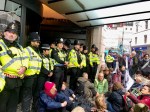
-
Norwich Rebels block Andaz hotel entrance
-
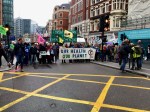
-
Road block swarming progress
-

-
Protest outside the oil and gas summit – Andaz Hotel
-

-
An innovative lock on – this one really had the police scratching their heads – I think they enjoyed the challenge
-
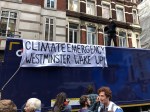
-
Climate Emergency – Westminster Wake Up
-

-
Protestors get on top of lorry
On the people being arrested front. It’s quite hard seeing your friends being taken away by police, especially when you’re not willing to be arrested yourself, as was the case for me; too many complications with my job at present. You’re left with feelings of guilt for not being with them and not putting your freedom on the line, and also concern for their wellbeing. I do worry that some people put themselves forward to be arrested without fully understanding the consequences; this could really impact their future career prospects, affect their mental health, affect relationships, and have repercussions they aren’t aware of. There is also a risk of glamourising being arrested, or making it seem like it’s expected of you, will boost your credibility or is cool. Whatever anyone says I don’t believe it’s a pleasant experience, comfortable, risk free, or something to aspire to. Most people do really think before putting themselves forward to be arrested though, it’s not a decision taken lightly.
The Climate Crisis will however impact us all, and being arrested now for causing minor disruption has got to be worth it if it has a chance of stopping the major disruption and societal collapse, which seems almost inevitable at this stage.
We’re in the midst of the 6th Mass Extinction event. Extreme weather events are happening all the time. Conflict due to climate breakdown is happening now. Drought and famine are on the increase. Fires are burning out of control all around the world. People are dying now due to this crisis. We’re not changing course quickly enough, or at all in many cases, from the business as usual model that is destroying our world. Some relatively minor disruption and being arrested has got to be worth it in the face of all that. Surely people impacted by our actions can reflect on why we’re doing it, and conclude that being late one day, or not getting home when you expected, is nothing compared to what is coming.
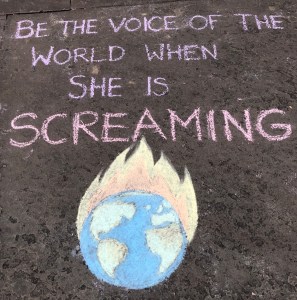
Be the voice of the World when she is screaming
On that note I experienced some interesting and varied reactions from people during the protests. There was an incredible amount of support from many, even from those stuck in traffic jams, but also some less agreeable and aggressive reactions from some. I can understand and empathise with those who we’ve irritated or delayed from something important. I’d hate to be responsible for delaying someone getting to a hospital appointment. Some just want to get to work, or get home, and we’re seen as targeting normal people just trying to get on with their lives; I will talk about the Canning Town tube disruption in a bit, just not yet or relation to this point. It still however comes back to it being, the majority of the time, relatively minor disruption for a very good reason (see above). I experienced first hand some very abusive comments, coffee cups being thrown, and the threat of violence; this was mostly during rush hour in the financial district. It’s interesting and perhaps not unexpected that the majority of this behaviour originated from middle aged and older white blokes, with no inclination to try and understand why we’re there, or the Climate Crisis. They’re often red faced, stressed looking, heart attack victim waiting to happen. You can also almost feel the waves of self-entitlement, elitism, and testosterone fuelled anger rolling off them. I’ve been trying to think why they’re so angry and I’m wondering if it’s because they feel threatened by us. Are we threatening their status and masculinity? Are we challenging them at some subconscious primal level? I don’t think it would matter if we were protesting about the climate or beer prices, I think think they’d still be aggressive and unwilling to interact reasonably. I reckon it’s often alpha males feeling threatened and reacting according to their evolutionary DNA. Perhaps it’s a competition thing, like two strutting peacocks facing off. Thankfully these sorts of responses are in the minority; most middle aged blokes were fine!
I wasn’t willing to be arrested, but that didn’t mean I wasn’t busy. I often ended up with various people’s mobile phones in my pockets that they didn’t want the police to confiscate! I spent a lot of time live-streaming actions to our Facebook account, or helping with comms to Norwich and Norfolk folks and between Affinity Groups; we ended up super-grouping our Affinity Groups in week 2 for the sake of efficiency. Another learning is around Affinity Group membership and structure – we probably need less groups for future large Rebellions, to ensure sustainability, resilience and support.
On the live-streaming front I used up far too much of my data allowance filming the Grief Funeral march processing from Marble Arch down Oxford Street, which I think took place on the Saturday; the film is on the Norwich FB page somewhere. Around 30,000 people marched through London in an array of costumes and props, however it was barely reported by the press; we suspect the BBC may have had instructions not to report on us, and I’m considering submitting a Freedom of Information request to learn if there’s any truth behind that. The Grief March was impactful and emotional, with a lot of support from the pavements. The Red Brigade brought a whole tube station to silence as they made their way through the city, remaining in character the whole time; they also provoked tears from many, such is power or iconography and silence.
-
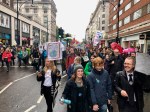
-
Some familiar faces xx
-
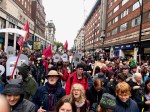
-
Grief March down Oxford Street
-

-
Dramatis Personae
-
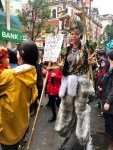
-
Some amazing costumes
-
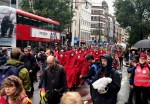
-
Red Brigade leading the procession
-

-
Which world would you prefer?
I wasn’t involved in the action at London City Airport, however several Norwich and Norfolk XR members were, and were arrested as a result; they blocked an access point to the airport, on bikes. I did watch on the live stream as the partially-sighted former Paralympian James Brown climbed on top of a plane, despite being scared of heights. Another activist boarded a plane and refused to get off. Air travel is a major contributor to fossil fuel emissions, more than any other transport sector, yet the number of plane flights continues to grow. Another example of the seemingly unstoppable runaway business as usual train which needs to be slowed down and stopped somehow, or at least adapted and evolved to something less damaging. I think this was a good example of an action targeting the right place and people; high impact on the environment from plane travel, and the relatively small % of the population who can afford to fly for business and pleasure to an excessive degree.
The airport action also saw disturbing scenes of the police using ‘pain and compliance’ to restrain activists. There is film footage of this, and it’s not very pleasant with the activist in question gasping in pain whilst not, to my eyes, putting up any resistance. It reminds me that whilst we’d like the police to be on side, whilst they are ‘just doing their job’, and whilst we’re often very friendly and want interact positively with them it’s not always the right thing to do.
Many protest groups and individuals from black, brown, indigenous, ethnic or minority communities, have not been treated well by the police. Their experience of being stopped and searched or arrested, often unjustly, has not been good at all. Statistically they are much more likely to be stopped and searched, or arrested. Institutional racism is still thought to be prevalent in the police force, despite efforts to eradicate it. XR members chanting ‘we love you’ whilst rebels are being arrested can be counterproductive, even when it’s not actually directed at the police, but towards the activists being taken away; it can be perceived as being directed at the police and in the past has been. In addition gestures of love or kindness towards the police can alienate groups we want to be onboard with. Flowers sent to Brixton police station by an activist, with good intentions, to thank them for their kindness and care can have a very negative reaction in communities which have seen friends and family hurt or even die in police custody, in that station. I’m still learning about this, and might use the wrong words, however it’s clear we (XR) need to learn and change our approach in some areas to ensure we become more diverse and inclusive. We need to acknowledge the challenges faced by the non-white and the non-middle classed, people we’d love have in our organisation. We need them.
-

-
Road blocks in place at the start of the ‘Banking on Breakdown’ day of action
-
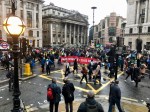
-
Bank Junction occupied by Rebels
-

-
Climate Struggle = Class Struggle
-

-
We’re scared, that’s why we’re here
-

-
Fossil Fuels = Extinction
-

-
Setting our sights on Canary Wharf
Into week 2. It was an early start on Monday for the ‘Banking on Breakdown’ day of action, targeting banks and financial institutions contributing to the climate crisis and ecocide; most of them one way or another. It’s that system change thing again, with capitalism and neoliberalism driving all the wrong behaviours. We rolled out of our tents in the early hours, after much planning over the weekend, and headed for the rendezvous at St. Pauls.
Initially we teamed up with a few other East of England affinity groups to put in road blocks in the financial sector of the City of London. It was a very wet start to the day, and our first roadblock was cleared after about an hour culminating in several arrests; some downtime in the cells for several friends. We regrouped at Bank Junction, outside the Bank of England, where the bulk of rebels were gathered for the day blocking the roads. I had a few good conversations with journalists and workers, who all got it at one level or another. After a quick discussion we decided to get together the Norwich and Norfolk Rebels we could find, along with several from Cambridge, and head to Canary Wharf to bring some direct action to a bank heavily invested in the fossil fuel industry. I cycled there on one of London’s cycle super-highways; they’re ace, and I didn’t get lost for once.
-
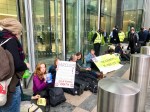
-
Barclays – Stop Funding Death
-
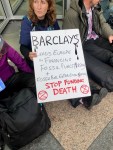
-
Barclays – Leads Europe in financing fossil fuels
-
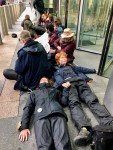
-
Rebels glued on outside Barclays Office in Canary Wharf
Rebels arrived in dribs and drabs via the Tube, or like me by bike, and a game of cat and mouse ensued with undercover police or private security teams (not sure which) as we moved around Canary Wharf trying to work out where we were going. It’s quite a disorientating place, and feels completely disconnected from nature. I think the security teams are quite used to protestors turning up, with actions regularly taking place outside Barclays.
-
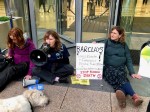
-
Megaphone outreach activity with sleepy dog
-

-
Conscientious Protector
-
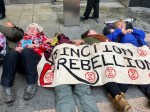
-
More door blocking – cold on the ground!
Barclays invests billions in the fossil fuel industry, and is up there in the top world rankings for financing activity killing us and the planet; tar sands projects in the US and Canada are not a good thing. We blocked the main doorway for several hours, read the Declaration of Rebellion, and performed outreach activity with workers and passers-by explaining why we were there. It was very cold and windy at Canary Wharf, but numbers grew until we had a sizeable crowd involved. We asked if we could speak to members of the Barclay’s Exec Team to explain our activity, ask them to divest from fossil fuel based funds, and get some answers, but no-one was forthcoming. The one manager who did appear was only interested in how many of us were being arrested, and what for, and smirked the whole way through any conversations; really dispiriting. They’re more interested in driving excessive profits for a small number of very rich people, at the expense of everyone else and the planet.
-
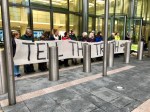
-
Tell the Truth Barclays
-
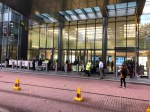
-
Rebels outside Barclay’s Bank, Canary Wharf
-

-
Time is running out, be a force for change
It should be noted that many of the normal workers we spoke to were pleasant and interested in our message. Most of them very much get it, but are trapped by needing to earn money to support families, pay mortgages, conform to what society expects of us, and by a toxic system that doesn’t offer any other options. They don’t necessarily have another path open to them which is accessible or offers sufficient financial recompense to support their current lifestyle choices. The whole system needs to change, and we need to realise that means we can’t go on the way we are. It will mean big changes to the way we live and operate, and some of these changes won’t be comfortable at all, at least to begin with. I believe however that we can transition to a better method of living, with tighter knit better connected communities, working with nature and not against it, increased equality, more produced locally, and eventually a healthier and happier society; but different, very different. A topic for another blog, but if we don’t start making these changes soon, globally, we’re screwed.
The Barclays’ action culminated with the police arresting eight of our number, using solvent to remove superglue, or cutting tools to breakthrough lock-on tubes. I was on camera duty for most of the day, live-streaming footage, or doing a bit of outreach activity, or supporting the Rebels blocking the doorways. There was a bit of a wait for police vans due to everything else going on round the City, however eventually our comrades were carted off to Sutton Police Station; it was a fairly emotional end to the action, with more than a few tears and shouts of support to those under arrest for aggravated tress-pass and obstruction. The police were gentle, polite and respectful throughout, but we could tell they were getting tired and stressed by long shifts, relentless XR actions, and lack of resources their side. There were several occasions during the course of the October Rebellion where Rebels were de-arrested by the police, as they ran out of police vans or cell space, however this was not one of those times. The Barclays’ high ups obviously wanted to make a point, and made sure the police kept the arrestees in cells for the full 24 hours; money and influence talks. It felt good to have targeted what can be regarded, at least in part, as climate criminals. We targeted the right people, with 8 arrested for crimes incomparable to the destruction, climate breakdown and ecocide caused by investment into an industry we are all forced to use to one extent or another.
Our diminished group retreated from Canary Wharf to regroup at Bank Junction, which was still being held as part of the Banking on Breakdown day of action. We were all pretty tired so retreated for a round of vegetarian burgers.

Reduced in number but still going strong – Norwich Rebels regen time
We joined the end of the Bank Junction protest in a big march down to St. Pauls; lots of drumming, dancing and singing, with some lovely support from drivers and passers-by. It was, however, very wet!
The next day we had to leave Vauxhall Pleasure Gardens, a sad departure. I’m not entirely sure why the police decided to move us on, especially as Lambeth Town Council had given us permission to be there. I suspect they just didn’t want us to have a big base to operate and launch actions from.
-

-
Final day in Vauxhall Pleasure Gardens – police issuing what we now know were unlawful section 14 notices
-
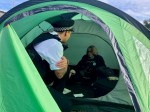
-
Rebel refusing to move from tent
-

-
Red Rebels turn up to support
We now know that the Section 14 order placed over London was unlawful, but at the time the police were using it to disperse us, confiscating tents and arresting those refusing to move. The Red Brigade turned up to support us on the final day.
-

-
Murmuration talking to the police
-
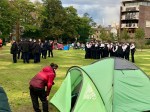
-
That’s a lot of police for one tent
-

-
Protesters carried off
We left the gardens in a good state, making sure we cleared up all litter. Clearing the site took several hours, during which we talked to the police, shifted kit into vans, and had a chance for a bit of a sing-song with the Norwich XR choir.
-

-
Some of the final Rebels to hold out
-
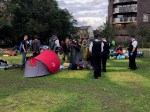
-
Light green patches where tents had been, but park generally in good state
-

-
Sun breaks through the clouds
So that was it, all the main October Rebellion sites cleared despite our best efforts, however we’d lasted longer than I thought we might. Maybe we need to re-think out tactic of taking and using large sites during these big rebellions. They can be counter-productive, with people getting attached to them and not focussing on actions that can have more impact. Maybe we should do more to ‘move like water’, popping up in one place for an action before dispersing only to arise again in another. However having everyone together does build a sense of community and solidarity, allows for mass Peoples’ Assemblies and planning, and helps with our regenerative culture.
Another point on the sites front was that much of our organisation and decision making structure was tied to a physical location, in terms of people and roles. When sites fell, or merged with others, these structures seemed to partially breakdown. Maybe we need a more virtual network and structure next time, or processes to better integrate multiple sites into one. Things still worked, but they could work better, and we perhaps need better communication channels with the Rebel Support Office.
On the comms front we were using both the Signal and Telegram Apps, as well as WhatsApp and Facebook. This became quite confusing and overwhelming at times. It also starts to break down when peoples’ mobile phones run out of charge and there isn’t the infrastructure in place to recharge them, if for example the police have confiscated items. We might need to rationalise our comms channels, and work on the ‘less is more’ principle. We also need to continue using public facing channels such as Facebook to recruit more people to actions as a Rebellion progresses, and individuals decide to join us; they won’t have access to our more private channels. Lots to think about before next time.
After leaving Vauxhall Pleasure Gardens the remaining Norwich and Norfolk rebels dispersed across London, with me and several others moving to a sanctuary site; a church hall in Islington, for a few nights. They and several other organisations, mostly churches, opened their doors to welcome us, providing much needed floorspace, and even a kitchen to use in this instance. A few of our comrades, those arrested at the Barclay’s action, had to leave London for home or break their bail conditions; very sad to see them go. We met up the next day to regroup and head to Trafalgar Square to join rebels in defying the Section 14 ban on us gathering.
-

-
On the move from Islington to Trafalgar Square
-
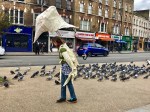
-
Communing with the relatives
-

-
Yoda out in support
Hundreds gathered in defiance of the unjust Section 14 order, to listen to various speakers including George Monbiot, a representative from Friends of the Earth, religious and spiritual leaders, and environmentalists from all over the UK and beyond.
-
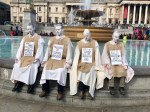
-
The ghosts of climate breakdown
-

-
That section 14 ban didn’t really work
-

-
Talks and Peoples’ Assembly in Trafalgar Square
-

-
Norwich Rebels on the mic
-
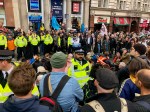
-
George Monbiot being arrested
-

-
Peoples’ Assembly concluding
There were several arrests, including that of George Monbiot, as rebels occupied parts of the road around Trafalgar Square and Whitehall; this went on for hours.
-

-
Two Norwich Rebels survey the scene in Trafalgar Square
-

-
Be the voice of the Earth when she is Screaming
-
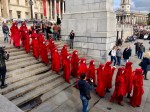
-
Red Brigade at Trafalgar Square
In the evening we headed to the Shard, to bring attention to the role the media plays in the Climate Crisis.
-
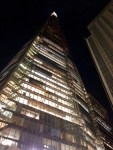
-
The Shard – site of Rupert Murdoch’s media empire
-
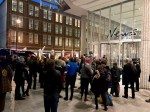
-
Time for the news corporations to Tell The Truth
-

-
Today’s headlines are out
The mass media often seem to either not report on the Climate Crisis, under-report it, or falsely report on it. It’s time they told the truth and gave these issues the prominence they need to wake up wider society to the challenges we face. On top of that they need to stop giving any media-space to climate change deniers, surely we’re past that now.
-
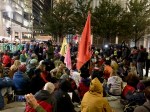
-
Numbers gather, with drumming and banners
-

-
Candle lit vigil
-

-
Travelling Lobster still going strong after nearly two weeks
Another long day, but successful in demonstrating we will not be silenced, and again targeting organisations that need to up their game.
I think it was the following day we awoke to news of the Canning Town tube action, a protest most of us had voted against, and which I feel was badly timed, targeted the wrong people, and the wrong infrastructure; public transport that is at least part ‘green’. I wrote about it at the time, saying how it broke some of the media blackout we’d been experiencing, but sadly for the wrong reasons. Many of us have reflected long and hard on it in the weeks since. We know the theory behind XR and civil disobedience; that 3.5% of the population thing. We know we can’t be friends with everyone and that inevitably we will make mistakes, this action, in my opinion, being one of them. But we know we have to do do something to try and wake people up, and bring about change. Or should we just sit around, watch the world burn, and wait for our inevitable demise?
This was another learning for me from the October Rebellion, from some of the messaging and training out of the Global Justice movement, and from some of the reading I have done since. XR needs to perform actions, but I think we need to think harder about targets and timing, who it will impact, and the social science behind our tactics which may not have been interpreted correctly, or been used on a bit of a pick and choose basis. It felt right targeting industries that directly contribute to the problem. It did not feel right to be targeting normal working class people trying to go about their lives, a lot of whom are struggling to make ends meet. This was very counter-productive, and damaged our reputation and some of the good work done to date. We need these people in our movement and on side, as we run out of time and start to witness the terrifying impacts of climate breakdown. These impacts are likely to affect poorer people first, and sooner that we think.
Some of the social science being used talks about needing 3.5% of the population on side and activated in order to bring about change. However the evidence for this seems to be from societies where the 3.5% were oppressed or repressed, often violently. With the majority of XR members being white and middle classed, we are not being oppressed or repressed, and certainly not violently. In fact actions such as the Canning Town tube debacle, although well intentioned, are in danger of turning us into the oppressors in the eyes of those affected; normal working class people who aren’t feeling the impacts of climate breakdown. So instead of rebelling against a system that is killing us, we could end up being rebelled against by the very people most at risk from the challenges ahead. We need to target the powerful, not the powerless.
I sincerely hope more people continue to rise up and join Extinction Rebellion, but we need to work on diversity and inclusion. We need to engage at a grassroots level with, and learn from, the communities we are trying to recruit from. We also need to learn from other past and current movements with similar aims. They must look on with dismay at some of XR’s tactics and apparent disregard for the impacts on minority communities, but we’re only a year old and very willing to learn. I hope that over the next few months we’ll think more about this, evolve and adapt as an organisation, and come out stronger.
There are loads of areas upon which we need to reflect. Topics still causing me some confusion and painful thinking include our practice of not blaming and shaming, as well as being apolitical or ‘beyond politics’. On the first point I think it’s definitely wrong to blame normal individuals who have no current choice as to their way of life, however what about government and business leaders supporting the toxic system which is at the root of the problem? And likewise on the political front, especially with a general election coming up, should we come out in favour of a party more likely to bring about the changes needed? I know politicians have been failing us for a long time on the climate and ecological front, and will no doubt continue to do so, but shouldn’t we more openly support those at least trying to make a difference? Maybe XR should continue not supporting one party over another, whilst individual members can of course do so. I do think we need to encourage members from all sections of society, and supporting one party might inhibit this. It could sow division and even intimidate potential members into not joining us. But if one section of society, and let us for arguments sake call that Tory party members leaning more the right, is blatantly putting our futures at risk, then shouldn’t we come out against them? I want an inclusive and diverse movement, but don’t know how we achieve this in some areas, and am not entirely sure we want or need to be inclusive of some people.
Phew, that was a long section without any photos. If you’re still going, thank you and well done!
-

-
Joining the un-masking BHP protest in solidarity
-

-
The protest highlighted how the Global South suffers at the hands of the Global North
-

-
Indigenous people travelled from South America to protest against the huge mega-mining company
Thursday was my last full day in London. I was beginning to feel pretty tired and was missing the quiet of the countryside, and fresh air. I was still enthusiastic about the Rebellion but events such as the Canning Town action had knocked all of us off centre, and we’d lost quite a few of number by this point; to arrests or from just needing to go home for work or to support families. Whilst rewarding it can be draining trying to keep things going, comms flowing, and people supported. I am very grateful to certain individuals who helped keep me grounded and supported.
On Thursday morning I joined the non-XR protest versus the mega-ming corporation BHP. This all forms part of what I’ve been learning over the last few months. BHP run huge mining operations that extract valuable minerals from countries such as Chile, Brazil and Columbia. These minerals are used to make things that we all buy. The companies behind these operations, such as BHP, make huge profits at the expense of the people who live in these areas. Locals are subject to unfair wages and unsafe working conditions, and the the mines are destroying huge swathes of natural habitat and ecosystems upon which indigenous people still rely, and from which we all ultimately benefit in terms of biodiversity and oxygen production. The protest was to demand justice for people impacted by BHP, and the lives and land devastated by its activity.
It’s all tied up with the concept of neo-colonialism, the more about which I read the more I begin to realise how complex and huge the challenge is. The Global North is profiting from, and aiming to maintain its current excessive and high consumption based lifestyle, at the expense of the Global South. People in the Global South are being exploited, killed, threatened and evicted from their homes, or imprisoned, to support the sick profits of huge multi-national companies and ultimately our comparatively cosy but selfish lifestyles. We need global justice in the face of such activity, unless we really are complete arseholes that are happy for this to go on just so we can live as we do now.
And this for me is the crux of the matter. We can’t go one as we are now, and we can’t transform to a ‘green economy’ that replaces everything we have now with apparently sustainable alternatives. It’s just not that simple. For example to replace our current energy production units with solar or wind power needs precious minerals, many of which are mined in the Global South. The same with electric cars, and the next generation of mobile phones. In the UK are we willing to destroy the Global South via neo-colonialist practices, or are we willing to change? The massive carbon budget expenditure needed just to build all this new energy producing infrastructure, or electric cars, could in itself push us over a climate breakdown tipping point from which there is no return. From what I’ve researched there simply aren’t enough available resource to transform the whole world, and replace everything we have now with ‘green’ alternatives, and this couldn’t be done without massive CO2 emissions, or further devastation of the Global South. Therefore, logically, we need to move to a different sort of society, economy, way of life, or we will destroy ourselves.
Or maybe we just all start praying the gods or aliens will save us, ‘cos that’s always worked in the past.
-

-
XR elders protest outside the Supreme Court
-

-
Tell the Truth and Act Now
-
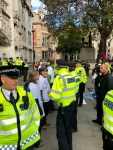
-
Many police to manage a small number of pensioners
After the BHP protest I nipped round the corner to support veteran activists outside the Supreme Court. Today XR wanted to highlight the impact of the ‘defence’ industry, arms trade, and war on climate change, and elders had gathered outside the court, gluing themselves together in protest.
-

-
Protest against the arms trade and how war drives climate change
-

-
Many veteran activists present
-

-
Much support as elderly activists arrested
Pretty amazing to watch the older generation standing together in uncomfortable conditions, putting their freedom on the line, and then being led away to police vans. Much respect.
We spent the afternoon in the City of Westminster walking from one protest area to another, sometimes arriving just as one finished due to rapid response by police. We all got pretty wet as the heavens opened, but thankfully dried off when the sun came out. Later that afternoon several of use decided to join a critical mass bike ride, with hundreds of other riders. I had the use of my touring bike, whereas others hired Santander bikes.
-

-
Pre-critical mass Hare Krishna veggie curry – excellent fuel
-

-
Norwich rebels gather in Hyde Park – rare photo that includes me!
-
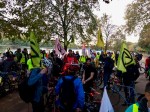
-
Ready of the off, many banners on bikes
The critical mass bike ride was unlike anything I’d ever been on before. It was huge. There were banners and costumes, so many riders, and multiple sound-systems. I was completely envious of the most impressive sound system; a rickshaw with DJ decks and huge speakers. We definitely need something similar for Norwich critical mass rides.
-
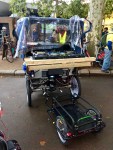
-
Awesome rickshaw with huge sound system, we need one!
-
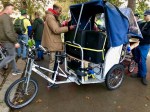
-
Rickshaw – want one for Norwich critical mass bike rides
-
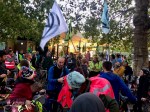
-
Numbers continued to grow – biggest crit mass I’ve ever been on
We pedalled off from Hyde Park on a ride that must have taken about an hour and a half. The sound system boomed, we rang our bells and rode past Marble Arch, down Oxford Street, down Regent Street, around roundabouts, past Buckingham Palace and down to Parliament Square. It was exhilarating, with much support from the pavements.
-
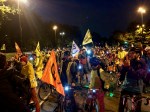
-
Pedalling off from Hyde Park
-
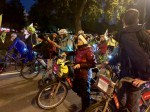
-
Debs on Santander Bike
-
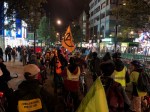
-
Down Oxford Street we go
I’ll say one thing, two weeks of rebelling in London, including riding your bike a lot, does an awful lot of good as far as improving one’s knowledge of where everything is and how it all joins together.
-

-
Down Regents Street Piccadilly
-

-
Still going strong, number growing all the time
-

-
Even had some canine companions
Here’s a bit of film from the Oxford Street section.
We ended the critical mass ride at Trafalgar Square, where Rebels had gathered for a mass meditation session. This ended with some uplifting singing and bouncing. Pretty groovy day all in all.
So that was me mostly done. I’d survived two weeks of being an ‘uncooperative crusty’ (thanks Boris, we’ll own that one) in London, and spent my last night back at the sanctuary space in Islington. The next day I took my leave of the remaining Norwich rebels and caught the train back home; I was too tired to cycle all the way back!
-
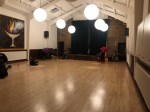
-
Sanctuary space in Islington where we slept
-

-
Tripod structure built in Oxford Circus
-
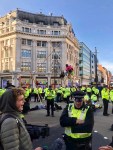
-
Police arrive to take down tripod
That was not the end however of the London Rebellion, with two more days of actions and activity scheduled, including the ‘Red Hand’ march; following pictures courtesy of friends or the Internet.
-

-
Red Hand prints started to appear round London
-

-
Those newspapers were still making an appearance
-

-
We will raise our red hands, taking responsibility for our actions – we all have blood on our hands.
What was the Red Hand march?
‘We will raise our red hands, taking responsibility for our actions – we all have blood on our hands. We march in admission and recognition of the part we play in the injustice of this emergency, and the ongoing suffering of thousands of people around the world due to climate and ecological breakdown.’
-

-
Caught red-handed
-
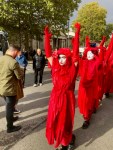
-
Red Brigade raised their hands
-

-
All done with chalk spray, so washes off
There were hundreds on the march again, which stopped at several government departments to demand plans are quickly made to tackle to climate emergency.
-

-
Burning Earth flags
-
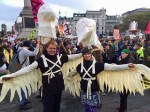
-
Norfolk Bird costumes still going strong
-
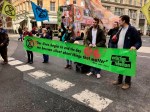
-
Our lives begin to end the day we become silent about things that matter
By this time I was back home in Salhouse, recovering but also missing my companions of the previous two weeks. One builds such strong friendships during these actions, which will no doubt endure for years to come. I know XR has much to learn, and challenges we need to overcome. I’ve discussed some of them in this blog, and will continue to mull things over, analyse our actions and future strategy, talk about it all with other Rebels, and we’ll work out where we go from here.

Travelling Lobster made it home, somehow with a squirrel that ended up in my panniers, courtesy of my niece and nephew
I know there are course corrections we need to make, such as diversifying our actions and tactics; it can’t all be about mass arrests, and we need to find a way of engaging with other segments of society. We also need to look at the bigger picture; climate breakdown cannot be viewed in isolation, it needs to include social justice and equality.
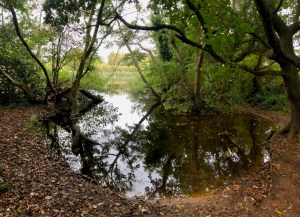
Back home, peace!
This has been an epic blog to write over the course of about 10 days. I could have broken it up, however as mentioned at the start writing it has been part of the reflective process for me, and one thing kinda flowed into another. I may well pull out individual bits and expand upon them in future. There is still a lot I need to think about and learn!
Thanks for reading, and stay turned for more Norwich and Norfolk actions. Why not come and get involved yourself?
WE ARE ALL CREW




